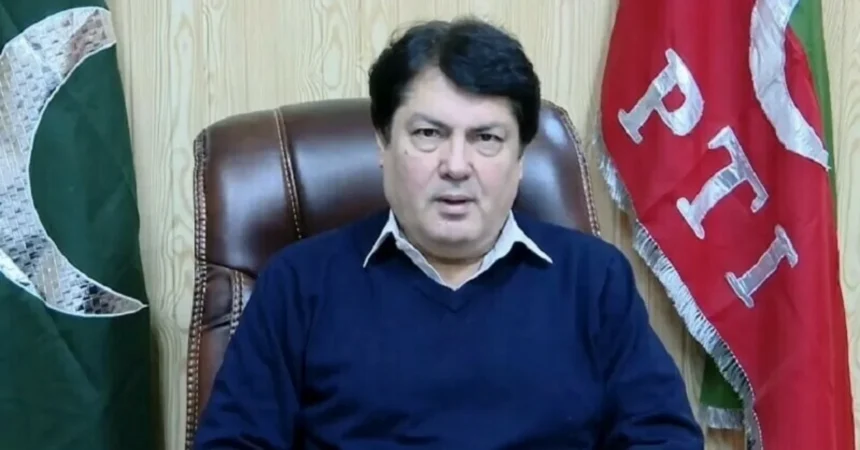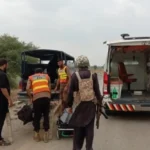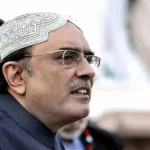In a shocking incident that underscores the complexities of Pakistan’s political landscape, a senior government official’s comments regarding the Pashtun Tahafuz Movement (PTM) have ignited outrage among Pakistan Tehreek-e-Insaf (PTI) leaders and their supporters. The remarks were made during a public address, where the official seemingly dismissed the significance of the PTM and the concerns raised during a recent jirga in Khyber Pakhtunkhwa (KP). This incident has brought to the forefront critical issues surrounding ethnic rights, governance, and the urgent need for dialogue in a country that has seen its fair share of political unrest.
The PTM has emerged as a prominent voice advocating for the rights of the Pashtun community, addressing grievances such as enforced disappearances, extrajudicial killings, and the lack of access to justice. The movement’s leaders have been vocal about the need for accountability and have organized numerous protests and public meetings to bring attention to their cause. In this context, Saif’s comments, perceived as belittling the movement and its objectives, have prompted a backlash from PTI leaders and supporters, leading to a broader discussion about the implications of such statements on the political climate in Pakistan.
Context of the Outrage
Saif’s remarks were made during a public forum, where he expressed views that many interpreted as dismissive of the PTM’s legitimate concerns. His comments suggested that the movement was exaggerating the challenges faced by the Pashtun community and undermining the government’s efforts to address these issues. The backlash from PTI leaders was swift and vocal. They took to social media platforms to express their outrage, calling for accountability and a more nuanced understanding of the PTM’s objectives.
The PTI, which has often positioned itself as a champion of justice and reform, finds itself in a precarious situation. The party’s credibility is on the line as it grapples with internal divisions and external pressures to respond adequately to the grievances of minority groups. This incident serves as a reminder that political discourse must be handled with care, especially when it involves sensitive issues related to ethnicity, identity, and rights.
Implications for the PTI
The fallout from Saif’s comments has serious implications for the PTI as it navigates its political landscape. As the party aims to consolidate its support base in KP and other regions, the need for a coherent strategy to address the grievances of the Pashtun community is more critical than ever. Failure to respond effectively could lead to a significant loss of support among constituents who feel their voices are not being heard.
Moreover, the PTI must consider the broader implications of the comments made by its officials. Such statements can alienate not only the Pashtun community but also other minority groups who may perceive the party as unresponsive to their concerns. To maintain its position as a progressive and inclusive political force, the PTI must engage in introspection and dialogue to address these emerging issues.
The political landscape in Pakistan is highly dynamic, and the PTI must adapt to changing circumstances. With increasing pressure from various factions within society, the party must work diligently to rebuild trust and foster unity. This includes addressing the real issues faced by the Pashtun community, which has historically felt marginalized in the national discourse.
Call for Unity and Dialogue
In light of the recent outrage, there have been calls from various political leaders and civil society groups for unity and dialogue between PTI officials and PTM activists. Advocates for peace emphasize the importance of constructive engagement, arguing that a collaborative approach can lead to meaningful solutions for the issues faced by the Pashtun community.
Many believe that the time has come for the PTI to take proactive measures to engage with the PTM and other marginalized groups. By establishing open channels of communication, both parties can work together to address the root causes of discontent and find common ground. Initiatives such as joint forums, dialogues, and workshops can facilitate understanding and foster a sense of solidarity between different factions.
Furthermore, these dialogues could pave the way for a more inclusive political process. Encouraging PTI leaders to listen actively to the concerns of PTM activists can help bridge the gap between the government and the community. Such engagement can also foster a sense of trust and cooperation, essential for fostering social cohesion in a diverse society like Pakistan.
Potential for Change in Governance
The ongoing outrage surrounding Saif’s comments highlights a broader demand for change in governance practices within Pakistan. Many believe that addressing the underlying issues raised by the PTM is crucial for establishing a more equitable and just society. The PTI has an opportunity to lead this change by prioritizing human rights, regional autonomy, and the protection of minority voices.
A comprehensive evaluation of the government’s policies toward ethnic minorities is necessary. This includes assessing existing laws and regulations that may contribute to marginalization and ensuring that they are reformed to promote inclusivity. The PTI can demonstrate its commitment to democratic values by actively engaging with civil society organizations and advocacy groups representing the rights of minority communities.
To achieve meaningful change, the PTI must also focus on enhancing accountability mechanisms within the government. Establishing transparent procedures for addressing complaints and grievances can help restore public trust in the government’s commitment to justice. This includes ensuring that law enforcement agencies are held accountable for their actions and that victims of human rights abuses receive adequate support and redress.
Media and Public Perception
The role of media in shaping public perception of this incident cannot be understated. With social media serving as a powerful tool for mobilization and awareness, the public’s reaction to Saif’s comments has garnered significant attention. News outlets have amplified the outrage, and discussions surrounding the issue have become a trending topic on various platforms.
As the narrative evolves, PTI leaders must remain vigilant about how their responses are portrayed in the media. A thoughtful and measured approach to addressing the concerns raised by the public will not only bolster their credibility but also demonstrate a commitment to addressing the grievances of marginalized communities.
Media outlets should also be responsible in their coverage, avoiding sensationalism and providing balanced perspectives that contribute to constructive dialogue. Journalists play a crucial role in framing public discourse, and their coverage can either exacerbate tensions or facilitate understanding.
Furthermore, public opinion is often swayed by the narratives presented in the media. Leaders from the PTI must recognize the power of public sentiment and work to align their messages with the aspirations and concerns of their constituents. Engaging with the media in a constructive manner can help reshape the narrative around the PTM and foster a more nuanced understanding of the challenges faced by the Pashtun community.
Long-Term Solutions for Peaceful Coexistence
Looking ahead, the PTI must prioritize long-term solutions that promote peaceful coexistence among diverse communities in Pakistan. This includes addressing the root causes of discontent and finding common ground through dialogue and collaboration. Initiatives that foster inclusivity, such as cultural exchanges, educational programs, and community engagement activities, can help bridge divides and cultivate mutual understanding.
Additionally, the government must prioritize investments in infrastructure, healthcare, and education in marginalized regions. By addressing socioeconomic disparities and improving living conditions, the PTI can demonstrate its commitment to uplifting all citizens, including those from minority communities.
Educational initiatives that focus on promoting tolerance and understanding among different ethnic groups can also contribute to social cohesion. By fostering a culture of respect and appreciation for diversity, the PTI can help create an environment where all citizens feel valued and heard.
The outrage sparked by Saif’s comments serves as a reminder of the complexities and challenges facing Pakistan’s political landscape. As PTI leaders and supporters grapple with the fallout, it is essential for the party to engage constructively with the PTM and other marginalized groups. By fostering dialogue, prioritizing inclusivity, and committing to meaningful governance reforms, the PTI can work towards a more equitable and just society for all Pakistanis.
Through collaborative efforts and a genuine commitment to addressing the concerns of marginalized communities, the PTI has the potential to emerge as a transformative force for positive change in the country. This incident may serve as a turning point, leading to a more inclusive and representative political landscape that respects the voices of all citizens.
As the political environment continues to evolve, the PTI must remain adaptable and responsive to the needs of its constituents. Building bridges, fostering understanding, and prioritizing human rights will be essential for the party’s success in navigating the complexities of Pakistan’s diverse society. The path forward requires a concerted effort to engage with all stakeholders, promote unity, and ensure that the voices of the marginalized are heard and respected.
In summary, Saif’s comments highlight the importance of sensitivity in political discourse and the need for constructive engagement with marginalized communities. The PTI must seize this opportunity to reaffirm its commitment to justice, accountability, and inclusivity, ultimately paving the way for a brighter and more equitable future for all Pakistanis.
#PTI #SaifComments #PashtunTahafuzMovement #PTM #KhyberPakhtunkhwa #PoliticalDiscourse #Inclusion #MinorityRights #PakistaniPolitics #SocialMediaImpact







